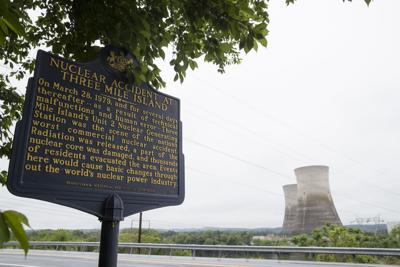HARRISBURG – A proposal to provide a lifeline worth hundreds of millions of dollars to the state’s nuclear industry will be unveiled later this month.
Proponents say it’s a necessary step to try to save thousands of jobs as owners of two of the state’s six nuclear power plants have already signaled that they will be shut down. Three Mile Island near Harrisburg is slated to close this fall and Beaver Valley in Beaver County is supposed to close in 2021.
The plan has drawn fierce opposition from opponents who say nuclear power doesn’t need a bailout because the companies that own the power plants are still profitable.
Nuclear power generates about 41 percent of the state’s energy from nine reactors at five locations, according to the Nuclear Energy Institute, an industry trade group based in Washington, D.C. In addition to Three Mile Island and Beaver Valley, there are nuclear reactors in Peach Bottom, York County; Susquehanna Steam in Luzerne County, and Limerick Generating Station in Montgomery County.
Nuclear industry officials say they are struggling because natural gas has driven down the wholesale price paid to electric generating companies. Nuclear operators say they should be getting a break because they are producing energy that releases far less carbon into atmosphere.
That’s the aim of legislation in the works by a bipartisan group of lawmakers led by state Rep. Ryan Aument, R-Lancaster County.
Energy costs would increase $788 million a year if Pennsylvania’s nuclear power plants were to all shutter, according to a memo Aument has circulated to other lawmakers seeking support.
The plan would likely be welcomed by the nuclear industry.
“While we can’t comment until we see legislation introduced, the principles outlined in the recent co-sponsors memo represent an important next step toward valuing the carbon-free energy that nuclear energy provides Pennsylvania,” said Dave Marcheskie, a spokesman for Exelon Corp., the company that owns the nuclear power plant at Three Mile Island.
An analysis by the Kleinman Center for Energy Police at the University of Pennsylvania put the price tag for the proposed bailout at $981 million a year. A separate analysis by the watchdog organization TMI Alert reached a similar conclusion. They estimated the cost would be at least $720 million a year, but depending on changes in electric prices, that the cost “you’re looking at $1 billion per year, at a minimum.”
Pennsylvania is not the only state confronting this controversy. A similar bailout plan is being debated in Ohio. New York provided its nuclear industry with a bailout in 2016 and last year, New Jersey provided a $300 million a year subsidy to nuclear plants in that state. Critics in that state said the subsidy would end up costing the average electric customer an extra $41 in rate hikes.
That’s the concern raised by the AARP in Pennsylvania, which has opposed the nuclear bailout here.
“It’s a consumer issue,” said Desiree Hung, advocacy director for the AARP in Pennsylvania.
The proposal would allow nuclear power plants to tap into a program originally created to help so-called alternative energy sources, like solar and wind.
The move makes sense because nuclear power is a carbon-neutral power source, said state Sen. John Gordner, R-Columbia County, who has signed on as a co-sponsor of the Aument proposal.
“Currently, 93 percent of our zero-carbon power is from nuclear,” he said. “I think most people would be shocked to learn that.”
He said that it will be more difficult and more expensive to meet clean air goals without nuclear.
The proposal is opposed by a coalition of groups, including the Industrial Energy Consumers of Pennsylvania, a trade group representing manufacturers.
“We support a diverse portfolio, we’re not anti-nuclear,” said Rod Williamson, executive director of IECPA.
His group notes that rate hikes that may only amount to a few dollars to residential consumers will be much more substantial to factories that use a lot more power.
Williamson said that when Pennsylvania deregulated its electric markets the nuclear power plants received billions of dollars in “stranded cost” subsidies because they were expected to suffer financially due to falling prices. But deregulation didn’t lead to an immediate drop in prices, so nuclear plants continued to reap profits and no one asked them to return the stranded cost payments that they hadn’t needed.
Williamson said there’s little reason to believe that energy costs will spike if the bailout legislation doesn’t pass.
Even now, the nuclear industry’s not in as bad shape as proponents of the legislation suggest, said Steve Kratz, a spokesman for Citizens Against Nuclear Bailouts, a coalition that includes the AARP, the IECPA and other business groups.
Kratz said the only nuclear power plant in Pennsylvania that’s not been profitable is Three Mile Island.
But all of the power plant operators will benefit from the bailout, Kratz said.






























Commented
Sorry, there are no recent results for popular commented articles.